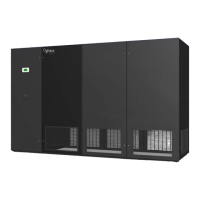30
5.5 Refrigerant Handling
The use of recovery/recycling units is required by U.S. Environmental Protection Agency (EPA)
regulations. Technicians who service and dispose of air conditioning and refrigeration equipment must
recover the refrigerant instead of venting it to the atmosphere.
Except for extremely small releases of refrigerant such as what occurs when disconnecting service
hoses, a technician who knowingly releases or vents refrigerant to the atmosphere is in violation of this
regulation. Refrigerant purchasers must be certied technicians and have a valid EPA certication card.
Warning: Pressure relief lines(s) must be vented to the atmosphere per the latest
edition of ASHRAE Standard 15 and/or any local building, re or mechanical codes.
This applies to all units with either shell and tube condensers or high pressure relief
valve options.
5.6 Important Refrigeration Components
5.6.1 Expansion Valves
5.6.1.1 Thermal Expansion Valve
Each refrigerant circuit has an adjustable thermal expansion valve (TXV). These are factory adjusted
to their normal rating. Any eld adjustment should be to “ne tune” a system that has stabilized and
already has acceptable operating parameters. Adjusting a TXV to produce large swings in superheat
is not recommended.
Proper TXV operation can be determined by measuring superheat. The correct superheat setting is
between 8 to 15°F (4.4 to 5.6°C). If too little refrigerant is being fed to the evaporator, the superheat will
be high; if too much refrigerant is being supplied, the superheat will be low.
To adjust the superheat setting:
1. Remove the adjustment cap from the valve.
2. Turn the adjusting stem counterclockwise to lower the superheat.
3. Turn the adjusting stem clockwise to increase the superheat.
Note: Make no more than one turn of the stem at a time. As long as thirty minutes (30)
may be required for the system to re-stabilize.
5.6.1.2 Electronic Expansion Valve (Optional)
The Electronic Expansion Valve (EEV) is an option available for this unit. This high eciency option
provides an Electronic Expansion Valve (EEV) on each circuit in place of the standard thermal
expansion valve (TXV). The EEV controls superheat through the dap4 controls by actively measuring
suction pressure via a transducer attached to the suction line and suction temperature via a thermal
transducer strapped to the suction line. The EEV actively adjusts the orice size and resulting mass
ow of refrigerant to maintain the superheat set-point.
See Section 7.3 Electronic Expansion Valve Drive (EDV) for detailed information regarding the EEV.
5.6.2 High Pressure Cutout Switch
Each refrigerant circuit is protected by a high pressure cutout switch (non-adjustable) with manual reset
button. The switch is typically located in the evaporator near the compressor. The high pressure switch
rating is:

